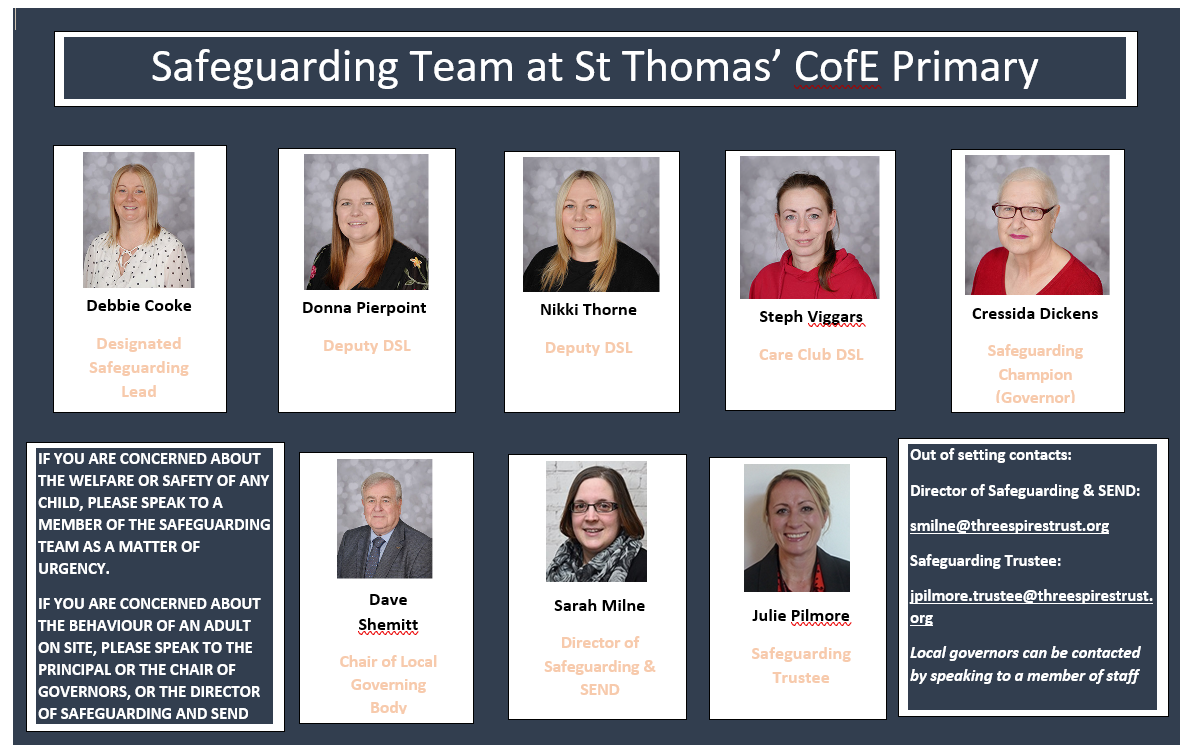Safeguarding
Safeguarding at St Thomas'
St Thomas' is committed to safeguarding and promoting the welfare and safety of all students and expects all staff and volunteers to share this commitment. We strive to ensure that consistent and effective safeguarding procedures are in place to support families, students and staff at school.
The Designated Safeguarding Lead is Mrs Debbie Cooke ( Deputy SENDCO/DSL)
The DDSLs are:
Mrs Donna Pierpoint (Head of School)
Mrs Nicola Thorne (Home- School Link Worker)
Miss Steph Viggars (Nursery Lead)
St Thomas' has policies and procedures in place to deal effectively with child protection and safeguarding issues, which include tackling radicalisation and extremism, together with recording and monitoring processes.
To promote a safe environment for pupils, St Thomas' employs a strict selection and recruitment policy which includes all statutory checks on staff and regular volunteers including Enhanced DBS (disclosure and barring service) checks.
All staff and volunteers receive Level 1 training which is updated annually in September. Anybody who starts to work or volunteer in school at a different point in the year receives this training as part of their induction package. Staff receive regular safeguarding updates and additional training throughout the year to ensure they remain informed of national and local priorities.
Concerns Raised
All concerns are triaged upon receipt by one of the staff named above in school in compliance with HM ‘sharing of information’ guidance, March 2015. Staff are required to report any causes of concern to the school safeguarding team. Referrals are logged and monitored to make sure that they are followed up appropriately.
Student attendance is monitored closely and concerns shared as appropriate with parents/carers, the Local Authority Education Welfare Service, Social Care and the school Safeguarding team. St Thomas' works effectively with other agencies and parents/carers when necessary to safeguard children.
If you have any serious concerns about your child, another student or a member of staff at St Thomas', please do not hesitate to contact a member of our safeguarding team, who will be able to provide you with the best advice and help using the appropriate degree of confidentiality.
Please do not hesitate to contact the school if you are concerned about a child. The school will protect the anonymity of referrers. Referrals can be made confidentially, but confidentiality in regards the concern being raised is not assured, nor is it usually an option.
Remember that if you believe someone is at immediate risk of harm you must dial 999.
CEOP
The Child Exploitation and Online Protection Centre (CEOP) aims to keep children and young people safe from sexual abuse and grooming online.
Parents, carers and children can report a concern about child sexual abuse or online exploitation to the CEOP Safety Centre.
ANY CHILD IN IMMEDIATE DANGER SHOULD ALWAYS CONTACT 999 FIRST.
You can contact CEOP by clicking here. This links to the CEOP website where you can report any concerns you may have. Alternatively, click www.ceop.police.uk/safety-centre/
Online Safety
Remember it is our responsibility to safeguard children online too. Below you will find some resources that provide more information about online safety:
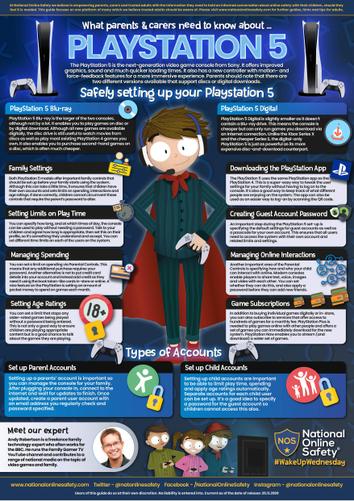
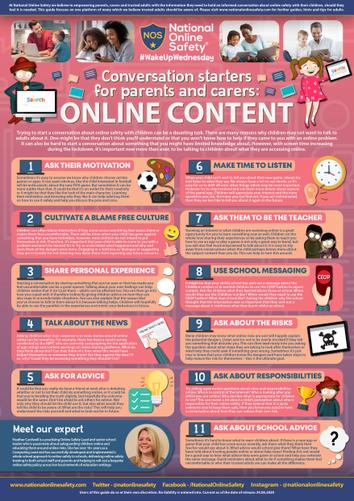
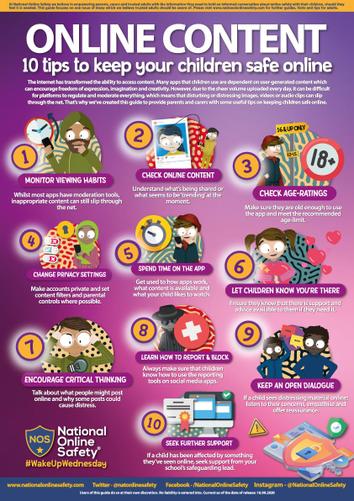
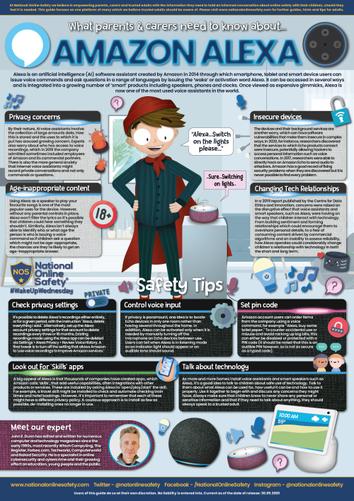
-
Online safety for parents and carers of 4-7 year olds
An online safety course from national leaders in online safety - National Online Safety - this is a FREE course for parents and carers
-
Online safety course for parents and carers of 7-11 year olds
A FREE online course from National Online Safety to support parents and carers.

